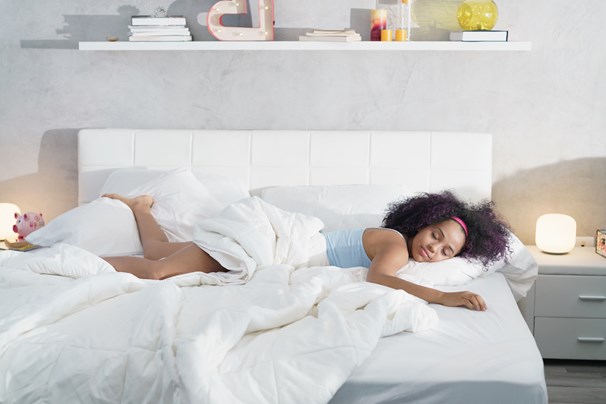
Sleep experts have shared their tips on what causes people to regularly wake up during the night – plus advice on how to roll over and return to a deep sleep.
According to a global sleep survey, 67 per cent of adults worldwide say they wake up at least once during the night.
Here experts give the lowdown on what factors interrupt a good night’s sleep.
Lifestyle
As we get older, we become lighter sleepers.
Terry Cralle, a sleep expert with The Better Sleep Council, told the Huffington Post: “Adults tend to have less slow-wave sleep [the deepest phase of non-REM sleep], and as a result, wake up more in the middle of the night.”
As well as this, your diet can also affect your sleep pattern.
Mark Aloia, global lead for behaviour change at Philips Healthcare, said: “Alcohol in particular can help you fall asleep, but it invariably fragments your second half of the night.”
Pregnancy is also a time when sleep gets disrupted from “hormonal changes, urination, anxiety and discomfort from a growing belly.”
Sleep medicine specialist Shelby Harris said: “As perimenopause hits for women, hot flashes and night sweats also begin to disrupt sleep quality.”
Health
“People wake up in the night for many potential reasons but some are quite common,” said Mark Aloia, global lead for behaviour change at Philips Healthcare.
Among these reasons include insomnia and obstructive sleep apnoea, which is characterized by repeated interruptions in breathing during sleep that may cause someone to wake up in the middle of the night. It’s important to get these conditions ruled out by a doctor if you find yourself waking up at the same time in the middle of the night.
“Sleep-related disturbances like sleep apnoea can lead to numerous health problems such as hypertension, heart disease, stroke and diabetes,” Aloia said.
“It can increase the risk for an irregular heartbeat, worsen heart failure, and even increase the chance of having work-related or driving accidents.”
Stress
Waking up during the night might be caused by stress or worry.
To combat this, Mr Aloia recommends people with anxiety keep a journal next to their bed to write down what’s causing them stress to help tackle middle of the night worry sessions.
Brain train yourself back to sleep
Experts recommends NOT clock-watching to help fall back to sleep.
Mr Cralle told the Huffington Post: “A clock face should not be in your line of sight during the night, and you should not be checking your phone for the time if you do wake up.
“When you check the time during the night, you inevitably calculate how long you’ve been awake, and how long you have left until you need to wake up. This can easily lead to stress and anxiety and make it difficult to fall back asleep.”
He added how it’s also important not to force sleep.
He said: “If you are not asleep in what feels to be about 15 to 20 minutes, get out of bed and do something relaxing and distracting in as dim of lighting as possible.”
This includes listening to an audio book, knitting or doing a puzzle.
